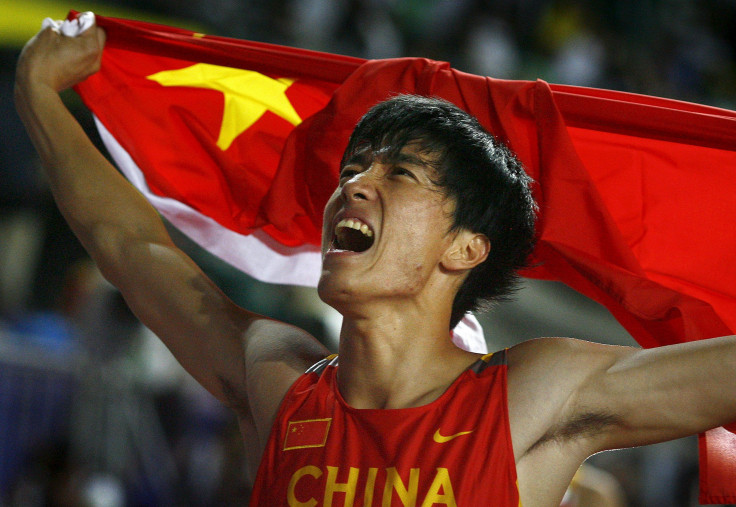Liu Xiang, First Chinese Athlete To Win Olympic Gold, Announces Retirement

Liu Xiang, China’s first-ever men’s track and field world champion, announced his retirement from competitive sports Tuesday, at the age of 31.
Liu has been one of China’s brightest sports stars since he startled the athletics world by winning gold in the 110-meter hurdles at the 2004 Athens Olympics, matching the world record at that time. But his career had been hampered by injuries in recent years, and hopes of a comeback this year were dashed in February, when his longtime coach announced that his vulnerable Achilles tendon had reacted badly to training.
Liu, who has always maintained a down-to-earth image despite his celebrity and the formality of China’s state-dominated sports system, announced the news in typically low-key fashion. On his Chinese microblog he wrote that he was saying goodbye to “my track, my hurdles,” adding “I’m really ‘old’ and ‘sick.’ … I can’t run with you any more, I can’t jump you anymore.” In a fuller text later published by Chinese media, he said he had loved the sport, and had been training hard, dreaming of making a comeback – but “my leg said no again and again.” It was depressing and painful, he added – “I hate my leg – I love my hurdles and track” – but now it was time to “begin a new journey.”
Liu’s career had been more off than on in recent years. In 2008, he shocked China by pulling out just before his first race at the Beijing Olympics, which had been billed as a heroic homecoming. And he had not taken part in a formal athletics competition since falling at the first hurdle in the heats of the London Olympics four years later.
But the failures had not diminished public interest; Liu’s donations to charity and his marriage to young actress Ge Tian last year added to his popularity. And speculation over his retirement has filled many column inches in the Chinese media over the past few days, since a report in a Shanghai newspaper last week that he had dismissed his comeback bid as a failure.
For many, Liu’s significance has never faded. As the first Chinese sportsman to win a major Olympic event, he is seen as a herald of the nation’s rise to global prominence. In 2004, as a good-looking, intelligent, self-effacing 21-year-old, the university student from Shanghai quickly built up a loyal fan base, boosted by the beginnings, around the same time, of China’s social media era. Breaking the world record in 2006, and winning the World Championships in Osaka, Japan, in 2007, further added to his appeal.
Liu did come in for some criticism after his ill-fated appearance at London 2012, with some suggesting he knew in advance he had no chance of winning and shouldn’t have taken part. But Liu wrote in his retirement letter that, despite his injury, he had really wanted to prove the doubters wrong by succeeding that day.
Britain’s Andy Turner, who won bronze to Liu Xiang’s silver at the 2011 World Championships, and also helped him off the track after his fall in London, described him on Tuesday on Twitter as “an absolute legend and an honor to race against.”
Chinese media expressed both sadness and sympathy after the news was announced. One commentator wrote in the official China Daily that she hoped China would learn from its treatment of Liu and show more “tolerance of failure” toward other athletes. Liu’s experience, she suggested, had been part of the growing pains of Chinese athletics – though she, like many, questioned where the next men’s track and field star would come from.
In an interview with Chinese state TV, Liu demurred when asked whether he planned to become a coach or a sports official. He said he wanted to do “simple, practical things,” not necessarily something high-profile. He also said he hoped he could help the development of youth sport and maybe go to work with poor children in remote mountain areas. In his retirement letter Liu added that he planned to study more, and wanted to help Chinese athletics to have a greater impact on the international stage.
Liu’s retirement follows that last year of Li Na, the trailblazing Chinese tennis star who also bucked the official system. For many of their fans it marks the end of an era in Chinese sports.
© Copyright IBTimes 2024. All rights reserved.






















